Practicing self-compassion as a discipline
There’s a lot out there in self – help type literature around the topic of self-love. I can see how it’s probably all well intentioned and makes sense in a way, but I can’t help but feel a lot of it sometimes makes people feel worse. It seems to have some kind of dreamy energy to it sometimes, some sense that it’s not actually so ‘authentic.’ Funnily enough that is another word I have a problem with at points, that’s for another post though.
I think self-compassion as a term has a lot more grit to it. It’s grounding, it’s more defining. I just came off an interview with a Coach and the word of the interview (not planned) was ‘gritty’ as we spoke about the journey of growth, dark times, and overcoming obstacles in life.
I think there’s more that needs to be said (and I’m trying to say it here) about real growth being ‘gritty’. It’s not to say we don’t have beautiful moments or there’s not space for all the lovely stuff but there needs to be grit in there for real transformation to occur.
Without this all we’ve done is get this kind of sugar high and we’re left with this feeling that nothing has changed or maybe we even feel worse that we can’t do this magical thing called ‘self love’ and live this life like the figure on the book cover can apparently do.
For me, the term ‘self-compassion’ and the practice of it is a bit more like the way we learn to clean our teeth. It’s gritty. It’s just something we do. We know it’s good so we do it and that’s the end of it. There. Done. It’s part of our day and becomes part of our way of being.
Practices like journal writing and meditation can be great practices to start to practice self-compassion as they’re ways to just start to own and feel into ourselves and be honest.
Often in our lives when we’re not diligent with self-compassion practices layers of dust can build up, in the same way plaque can build on our teeth and before we know it we’ve got some serious cavities going on !
Self-compassion overlaps totally as far as I can tell with what I’d call self connection. Being compassionate with ourselves makes us connected to ourselves and this is where the wheels really start to turn, and we see the truth of what is going on for us. We can see what we really need or conversations with others we may need to have.
When I speak to clients in my Counselling practice there can often be great realisations and relief in the first session, and we sometimes play around with these ideas. Counselling or anything whereas you can get a degree of empathy and mentorship can give a kind of self-connection and increase our self-compassion,
this all provided the person is being compassionate to you. Just having a mirror held up to us can sometimes be enough to give us this start.
It’s interesting though when people start to practice it themselves and there’s very commonly a journey of realising how it needs to become a discipline. we go easy though as everyone is on a journey. People often start doing a bit of journaling when they feel particularly bad. I always feedback how this is a great start and a good thing to continue. However again using the teeth analogy it can be like just cleaning your teeth when they look particularly gross. It’s a good start but some overall discipline needs to really be going on in the background for real growth and traction to take place.
So, if you’re getting anything from this article so far I’d like it to be something around the term ‘self-compassion’ , ‘discipline’ and ‘grit’. You don’t have to just feel self-love for yourself suddenly, just like you don’t have to feel like cleaning your teeth. Although Counselling is very much about our emotions and how we feel there’s so much to be said for just doing something and by doing something we therefore alter our state and get on a better path.
Self-compassion can be very much like that. You don’t have to feel like it but it’s something I’d recommend you just get used to doing like….. sorry I have to say it one last time …. cleaning your teeth.
A discipline of actions like journaling, meditation, or actions that put you in control are all actions of self-compassion. I think the statement I heard a Psychologist colleague say once of ‘we can all be more compassionate to ourselves’ is probably true.
If you are really struggling, then speaking to a professional can also be a profound act of self-compassion in my opinion. The key is never to suffer in silence and to always have an ongoing sense of your own self and what is occurring for you.
All the best Phil

